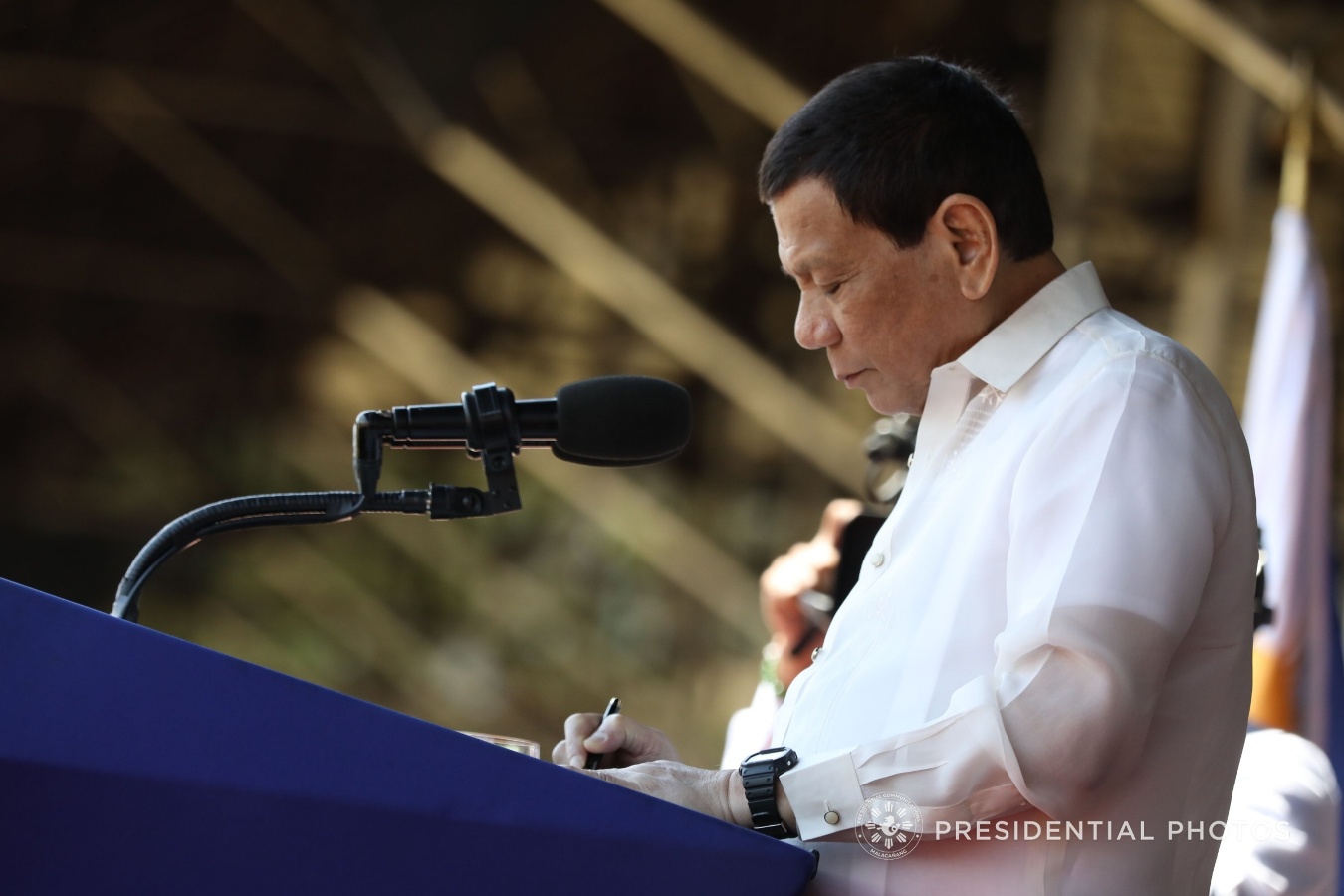Headline
Duterte to convince other countries to ‘get out’ of ICC

President Rodrigo Roa Duterte signs the Pardon of Punishment to all outstanding punishments of the underclassmen of the Cadet Corps Armed Forces of the Philippines during the Commencement Exercises of the Philippine Military Academy (PMA)’Alab-Tala’ Class of 2018 at Fort General Gregorio H. del Pilar in Baguio City on March 18, 2018. KARL NORMAN ALONZO/PRESIDENTIAL PHOTO
A few days after the President himself announced his decision to withdraw the Philippines from the International Criminal Court (ICC), he said that he will convince other signatory countries to follow his steps and “get out.”
“Ang sinabi ko lang (What I said), withdraw, simply because to announce to world… and I will convince everybody now under the treaty. Get out, get out…Bastos ‘yan (That is rude),” President Rodrigo Roa Duterte said in a speech on March 18, during the commencement exercises of the Philippine Military Academy (PMA).
“It is not a document prepared by anybody, it is an EU (European Union)-sponsored [treaty],” he added.
Duterte was referring to the Rome Statute – the treaty created by the United Nations (UN) in 1998 which established the ICC. According to the treaty, the ICC is a permanent institution that shall have the power to exercise its jurisdiction over persons for the most serious crimes of international concern.
These serious crimes were specified to genocide, crimes against humanity, war crimes, and crime of aggression.
The President called the treaty a BS, saying that it “is clearly a criminal law.”
Just last week, Duterte released a statement, regarding the Philippines’ withdrawal from the Rome Statute.
“I, therefore, declare and forthwith give notice, as President of the Republic of the Philippines, that the Philippines is withdrawing its ratification of the Rome Statute effective immediately,” he wrote on March 14.
(Read: Duterte withdraws PH from ICC)
While the President stressed that this withdrawal is effective immediately, Article 127 of the treaty states otherwise.
“A State Party may, by written notification addressed to the Secretary-General of the United Nations, withdraw from this Statute. The withdrawal shall take effect one year after the date of receipt of the notification unless the notification specifies a later date,” the treaty read.
However, Duterte also cited this article and contested that it is not applicable since “there appears to be fraud in entering such agreement.
”
“The Philippines in ratifying the Rome Statute was made to believe that the principle of complementarity shall be observed, that the principle of due process and the presumption of innocence as mandated by our Constitution and the Rome Statute shall prevail, and that the legal requirement of publication to make the Rome Statute enforceable shall be maintained,” the President wrote, but added that these considerations that the Philippines agreed upon were not observed or complied with.
Furthermore, Duterte reiterated in his speech that the treaty was not published in the Official Gazette, so it is not bound to be followed.
“Sabi naman nitong ibang ugok, mga Senador pa naman (Now these stupid people, who are actually Senators even said that), it would take about one year bago ma-effective ‘yang (for the) withdrawal (to take effect)… If it is not published, there is no law. So there is no reason to withdraw from something which is not existing,” he stated.
“Our rule in this jurisdiction is i-publish mo talaga para hindi maignorante ‘yung tao (you have to publish so people are not ignorant). If it is not published, you cannot tell me now that ignorance of the law,” Duterte added.
Legal experts, however, argued that publication is not a requirement anymore since, in 2011, the Senate already concurred the ratification of the treaty.
After the UN formally received the letter of the Philippines regarding its withdrawal, it released a statement encouraging the country to not push through as it is an “integral part” of the treaty.





















